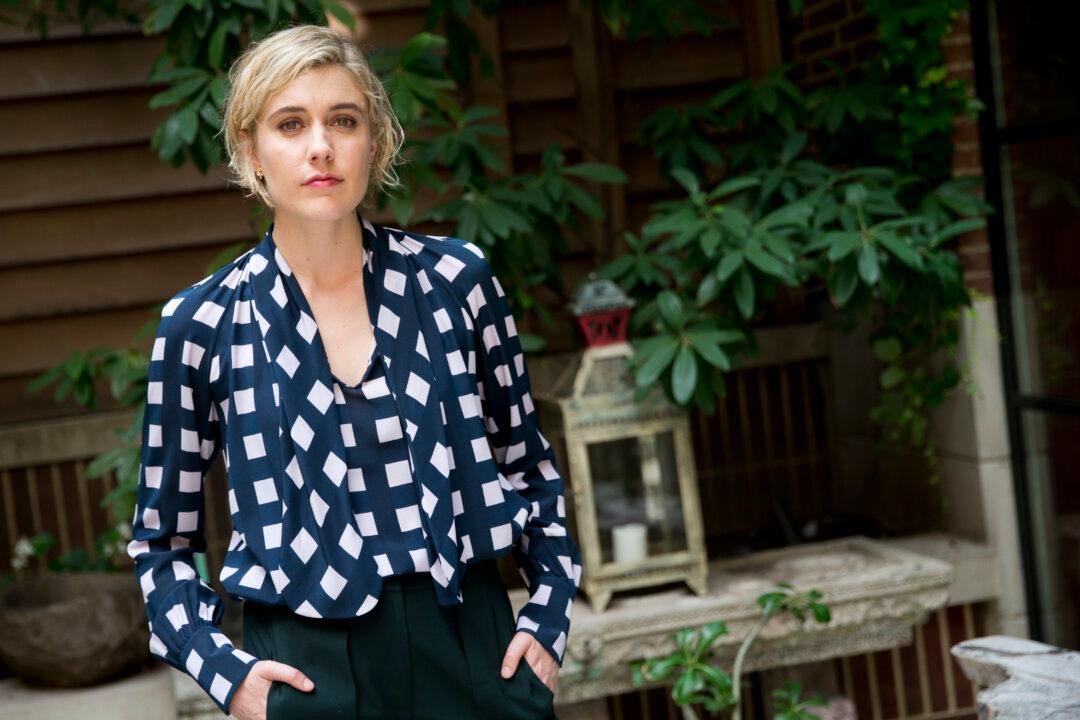NEW YORK — Greta Gerwig is sitting in a Greenwich Village cafe trying to explain how she goes from being fully enmeshed in creating a film — co-writing it, producing it — to stepping into the story and inhabiting a character.
“My job is to almost get a bit unconscious about the whole thing,” says Gerwig. “It’s an odd paradox of completely knowing what you’re doing — the language is in you, it makes sense — and also feeling like you’re riding something but you don’t have control of the speed.”
She pauses. “I keep thinking of a jet ski. I don’t know why.”
“Mistress America,” which opens Friday, is the second film Gerwig has co-written with director Noah Baumbach, who is also her boyfriend of several years. Together with “Frances Ha,” the two movies have established a wider view of Gerwig, who was already widely seen as among the finest, most authentic actors of her generation.
[aolvideo src=“http://pshared.5min.com/Scripts/PlayerSeed.js?sid=1759&width=580&height=350&playList=519005954&responsive=false&pgType=console&pgTypeId=editVideo-overviewTab-copyCodeBtn”]
“Mistress,” an ‘80s-movie inspired farce, and “Frances,” a French New Wave-inspired tale of 20s struggle, prove that Gerwig is as deliberate as she is intuitive. Though her sincere, confused characters have the messy blurred lines of life, that doesn’t mean they aren’t finely drawn.
“She’s broadening the scope of what she’s doing,” says Baumbach, who first cast her alongside Ben Stiller in “Greenberg” before the two became closer while making “Frances Ha.” ‘'She’s a real voice. It wouldn’t be wrong to say she has an authorial voice before she’s actually directed a movie.”
[caption id=“attachment_1723053” align=“alignnone” width=“580”] In this July 28, 2015 photo, actress Greta Gerwig poses for a portrait in promotion of her film “Mistress America” in New York. (Photo by Brian Ach/Invision/AP)[/caption]
In this July 28, 2015 photo, actress Greta Gerwig poses for a portrait in promotion of her film “Mistress America” in New York. (Photo by Brian Ach/Invision/AP)[/caption]But as Gerwig said in her recent interview, “That, sir, is in the works today.” She’s finalizing plans to direct a screenplay she wrote called “Lady Bird” that’s set in her hometown of Sacramento, California. She'll shoot it in March, with Scott Rudin producing.
So, by jet ski or whatever watercraft metaphor you like, Gerwig is on the move. Up until now, her career, which began in the low-budget “mumblecore” films of Joe Swanberg (some of which she co-wrote) and has dabbled in failed sitcom pilots and larger studio films like “Arthur” and “No Strings Attached,” has often been depicted as a pinballing between indie and mainstream.
But in films of any size, working either in front of or behind the camera, Gerwig’s aesthetic — awkward, funny, without artifice — is remarkably consistent. It’s kind of like the reverse of “The Purple Rose of Cairo”; instead of a movie character stepping off screen, she’s like a real person stepping onto it — and one happy to join any genre.
For “Mistress America,” the template was movies like Jonathan Demme’s “Something Wild” and Martin Scorsese’s “After Hours” — comedies of unexpected adventures propelled by domineeringly charismatic characters.
It was conceived around Gerwig’s character, Brooke, a 30-year-old whirlwind of truly felt but poorly planned ambitions. She does interior design, teaches spin classes and is trying to open a Manhattan restaurant called Mom’s.
Her intoxicating orbit draws in Tracy (Lola Kirke), her stepsister to be, a freshman and budding writer at Barnard College (where Gerwig also went, with playwright aspirations). The two fall in together in New York before, with a car-full of characters in tow, a trip to Connecticut yields a lengthy, manic screwball set piece.
“We wanted to emulate those movies where things go crazy. Maybe our investors would prefer we did not make movies that way,” says Gerwig, chuckling. “But I don’t know. Nobody was going to make any money, anyway. It seemed pointless not to amuse ourselves.”
At the heart of the film in the friendship between Brooke and Tracy, who’s infatuated by the larger-than-life Brooke. She begins writing stories glorifying but also humbling Brooke, who has been moving too fast to notice her youth slipping away.
Like Baumbach’s last film, “While We’re Young,” and “Frances Ha,” much of the drama comes from characters growing into or accepting their place in life.
“I don’t know many people who are like: ‘I’m 36 and feeling awesome with that, and not trying to be older than I am or younger than I am,’” says Gerwig, 32. “I perpetually always feel old and older than I should be and am slightly embarrassed about that. The first time I ever lied about my age I was seven and I said I was six. It was somehow feeling like I was already behind.”
Gerwig is quick to note she’s more Tracy than Brooke, but her personality seems wholly infused in both “Mistress” and “Frances” — both exuberant New York movies that celebrate the lives of young creative strivers not so unlike Gerwig.
“It’s one of the great triumphs of my life that I get to live here,” she says, looking toward the street. “I feel like I’m one of those characters that they date for an episode of ‘Sex and the City’ who says, ‘I’ll never leave Manhattan,‘ and they’re like, ’She’s crazy.'”





